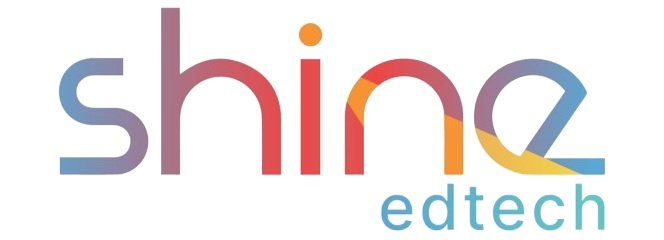Our Dream for Literacy across Asia, and Why Literacy Matters
“A… for apple”
“My name is Arditi”
“Do not touch - hot”
Language and literacy is the gateway to understanding people, things and the world around us, as well as to present ourselves to the world.
When we first started SHINE, literacy was the first area wesought to tackle as we understood how frustrating and alienating it is to not be able to understand or communicate one’s world. The power of the English language as a gateway to the international community was also recognised.
Words can bring life or death. I believe this concept also led to the rise of neurolinguistic programming (NLP) in the 1970s and its popularity is evidence of how words have the power to shape our brain, our thoughts and our life.
On top of these, literacy also has important implications for the following areas:
4 Key Functions of Literacy
Employment opportunities - Without literacy, it becomes challenging to search for or read a job advertisement, put together a resume, or read an employment contract, what more become gainfully employed. A lack of literacy thus alienates the illiterate from most white-collar jobs where reading and writing is typically required. The illiterate will also not be able to enter into the ‘future of work’, where an ever growing number of individuals and organisations are putting together lists of the must have skills and competencies for work in the twenty-first century, and nearly all of the skills identified (for example here and here) would require literacy as a pre-requisite. In order to be able to think analytically and critically, to continually learn, to make effective decisions, or to be cognitively flexible, it is essential that one has the ability to engage with, understand and apply the ever increasing flow of information and knowledge that surrounds them. Without literacy, all of which are far out of reach, including remote job opportunities which could provide much better livelihoods.
Self-expression and esteem - “Literacy is … the ability to use language and images in rich and varied forms to read, write, listen, speak, view, represent, discuss, and think critically about ideas. Literacy enables us to share information and to interact with others. Literacy is an essential tool for personal growth and active participation as a contributing member of society.” When people are literate, they are able to read, understand, engage and communicate their views - it is a way they can participate in the affairs of society and relate with people. Literacy also builds self-esteem. Readers who struggle are more likely to have difficulty expressing themselves, even verbally. This can lead to anxiety, depression, or other issues that impact an overall quality of life. The more able a person is to express themselves, the greater their confidence, their self-esteem, and their chance at living a happy, healthy life. A lack of literacy therefore stunts self-expression and to relate to much of the world who speaks a common language.
Civic engagement - Literacy further is at the heart of much civic engagement. Not only is much of the information released by the government and its associated agencies written, poor literacy also affects an individual’s ability to vote and therefore to engage in one of the foundations of democracy. Literacy also plays a fundamental role in everyday life; from being able to read labels on food at the supermarket, to reading road signs, to reading menus at the local café, or browsing the internet (not to mention being able to utilise the internet to leverage the ongoing learning opportunities that it offers).
Reading and empathy - Deep reading is an essential activity for building empathy and perspective taking in young people (and society more generally). Deep reading enables people to not only encounter but also to inhabit, through their immersive engagement with a written text, different lives, different perspectives and different worlds. Reading books and longer articles also is one of the best ways to learn how to think critically, understand complex issues and separate fact from fiction. This becomes all the more important (and concerning) given the current decline in reading for pleasure among adolescents (and other ages).
SHINE understands the strong need for literacy and is seeking to empower millions of children across Asia through our literacy-focused curriculum.
If you are interested to be a beta-tester for our app, write to us at edtechshine@gmail.com with your contact information and the reason for your interest.
